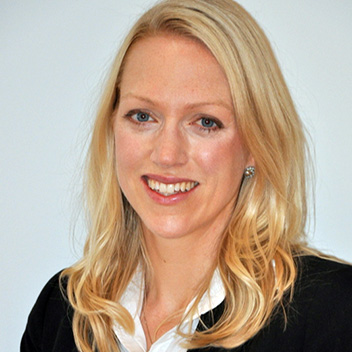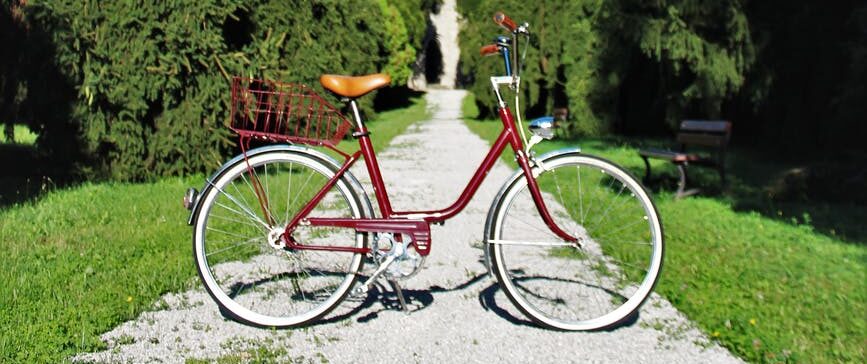A bicycle’s capacity to facilitate social change has inspired both interest and optimism, especially in the context of COVID-19, research out of York University shows.

Over the past six years, Faculty of Health Assistant Professor Lyndsay Hayhurst has led a research team funded by the Social Sciences and Humanities Research Council (SSHRC) to examine “Bicycles for Development” (BFD), the use of bicycles to achieve community-level, national and global development objectives.
In May 2020, the UN formed a taskforce to assess how to “make post-COVID-19 mobility more environmentally sound, healthy and sustainable” with an eye to “bicycles as driver[s] of post-COVID-19 ‘green recovery’” (UN, 2020). Elsewhere, several non-governmental organizations (NGOs) are using bicycles to address a number of pressing social issues related to achieving the UN Sustainable Development Goals (UN SDGs), said Hayhurst.
Earlier this year, Hayhurst and the SSHRC Insight project’s co-investigators – Brian Wilson of UBC and Brad Millington of Brock University, along with UBC postdoctoral Fellow Mitchell McSweeney and York School of Kinesiology and Health Science master’s student Jessica Nachman – shared findings from their research “Cycling Against Poverty: Research an ‘Object’ in/for Development.” The York University Bicycles for Development Research Group – part of Hayhurst’s DREAMING in Sport Lab – hosted a Bicycles for Development (BFD) virtual workshop Jan. 31, during which bicycle organizations from across the globe joined to hear research presentations and participate in a community workshop. Additional support organizing and hosting the workshop was provided by master’s students Julia Ferreira Gomes and Natan Levi (School of Kinesiology and Health Science).
“This was the first meeting of introductions, meant to explore the possibility of pursuing a community of practice for the transnational Bicycles for Development space,” said Hayhurst.
Mitch McSweeney – a former York PhD student in the School of Kinesiology and Health Science and current postdoctoral Fellow at the University of British Columbia (School of Kinesiology) – provided an overview of research he led on “Bicycles for Development: Findings and recommendations from a five-year study in Nicaragua, Canada, Uganda, India, and South Africa.”
Some highlights from the findings included the benefits of BFD:
- the bicycle as a transportation tool, and an enabler for women;
- the bicycle as a tool for independence, self-learning, and skill mastery; and
- the bicycle as a means to challenge cycling identities, construct safe spaces, and disrupt gender norms.
The overview also presented some of the challenges of BFD, including:
- bicycle infrastructure and safety;
- gender norms, relations and inequalities;
- intersecting considerations and exclusion of particular identities; and
- environmental conditions, bicycle structure and government regulations.
These findings, especially underscoring the importance, nuances and complexities of bicycle usage for women and girls in Uganda and Nicaragua, were also highlighted in a study published in one of the leading development studies journals, Third World Quarterly.
“The workshop was the ideal launch for the next iteration of the BFD project 2021-26,” said Hayhurst. The next phase of the project is also funded by a Social Sciences and Humanities Research Council of Canada Insight Grant, with additional support from a Canadian Foundation for Innovation (CFI) grant. Hayhurst is the principal investigator, and will again work with co-investigators Wilson and Millington, as well as Cathy van Ingen (Brock University), Francine Darroch (Carleton University) and McSweeney, who will be a collaborator once he starts at the University of Minnesota in August 2022.
“The next segment of the research will take place in Canada, Uganda and Nicaragua, with a specific focus on social entrepreneurship, reducing gender-based violence, ‘green recovery’ and the ways the bicycle may support anti-oppression and promote racial justice in a (post-)COVID-19 context,” said Hayhurst. “In this next stage of the research, the team will also be utilizing participatory mapping, visual methods and a trauma-and-violence-informed approach.”
The team anticipates hosting a BFD conference in June 2022 in Toronto.


